
How China’s Rare Earths Bombshell Shocked Trump To Retaliate With 100% Tariff
October 12th, 2025 by financetwitter
On Friday (October 10), Trump announced that the United States would slap additional 100% tariffs on all Chinese imports from November 1. Angrily, he also threatens to put export controls on critical software and to pull out of a meeting with China’s President Xi Jinping. However, residents of Beijing reacted with indifference and defiance the next day (Saturday, October 11) to U.S. President Donald Trump’s threat.
“I felt nothing when I first saw the news. Trump always has these childlike or capricious policies. China isn’t afraid of any U.S. sanctions or policies aimed at limiting us. We have the confidence and ability to do better ourselves. He always goes from this policy to that policy, causing great commotion in the world. He is a bit unreliable and unstable” – said Liu Ming, a 48-year-old employee in a software company, outside a large Beijing shopping mall.
Irene Wang, an insurance worker, joked about Trump’s unpredictable leadership – “He says one thing today, but maybe after a nap he’ll change his mind again. At his age (79), he should be a little more composed! For Americans, it could have an impact. Honestly, it isn’t the first time, so we will have to wait and see how things play out.” But Trump’s presidency also offers entertainment – “He gives us a lot to talk about at the dinner table.”
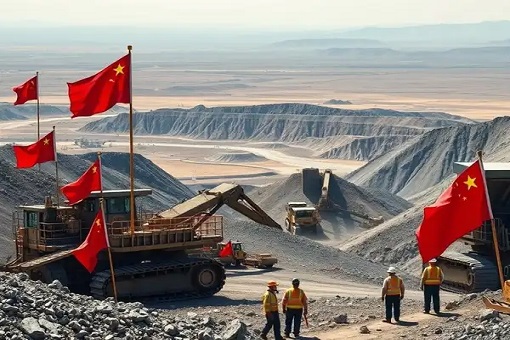
Ever since he started his trade war with China in his first term, Trump has always played the attacking role. But China unexpectedly turned the tables on Thursday (October 9) when it dramatically initiated the attack – expanding its rare earths export controls, adding five new elements and extra scrutiny for semiconductor users as Beijing tightens control under the pretext of “safeguarding national security and interests”.
Exports of 12 (out of 17 types) of rare earth materials are now restricted after the Ministry of Commerce added five – holmium, erbium, thulium, europium and ytterbium – to its controlled list. China, the world’s largest rare earth producer, also added dozens of pieces of refining technology to its control list and announced rules that will require compliance from foreign rare earth producers who use Chinese materials.
Essentially, any company – in China or abroad – must get Chinese permission to export certain products that derive more than 0.1% of their value from a rare earth. Foreign companies producing some of the rare earths and related magnets on the list will now also need a Chinese export license if the final product contains or is made with Chinese equipment or material.
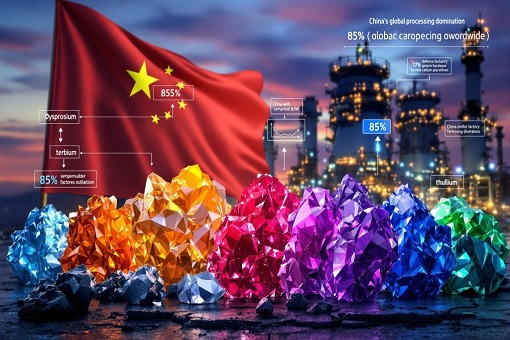
It’s not hard to see the serious impact of such rules. One of the most critical rare earths is dysprosium, atomic number 66 on the periodic table. If the tech industry were a bakery, dysprosium would be like baking powder – it is used in small quantities, but essential for enabling electric-car motors, wind turbines, military weapons and computer-chip machinery.
The best part is the rules apply even if the transaction includes “no Chinese companies”. More importantly, the ministry also banned their export for use by foreign militaries, whilst applications related to advanced semiconductors will be approved on a case-by-case basis. The rules will also apply to R&D (research and development) of AI (artificial intelligence) with potential military applications.
The new rules apply to 14-nanometer chips or more advanced chips, memory chips with 256 layers or more, and equipment used in production of such chips, as well as to related R&D. These advanced chips are used in products from smartphones to AI chipsets that require powerful computing performance. In short, almost every company in the world has to “kowtow” and get permission from Beijing.

China argued that the measures were needed to prevent rare earth metals from being used in technologies with possible military applications. For example, China refines all the world’s samarium, a rare earth metal used by the U.S. to make F-35 fighter jets and a wide range of missiles. Rare earths are also used to make the magnets that power the electric motors in drones, factory robots and offshore wind turbines.
Taking a page from the U.S. playbook, the Chinese regulations actually mimic rules the U.S. has implemented to restrict other countries’ exports of semiconductor-related products to China. It appears Beijing is giving Trump a taste of his own medicine by doing what the U.S. did to China over the years. And this is what made Trump absolutely mad and furious.
In fact, it’s an understatement to say President Xi Jinping’s stunning attack has shocked and surprised President Donald Trump. The Trump administration was in panic mode. “Some very strange things are happening in China! They are becoming very hostile,” – Trump wrote in a post on social media on Friday as he scrambled to retaliate to save face. But the U.S. president should have anticipated China’s counter-attack.
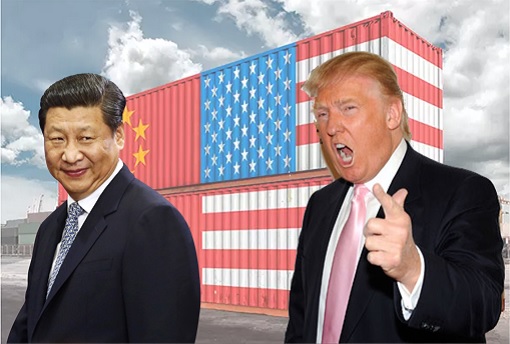
Beijing has long criticized Washington for exercising “long arm jurisdictions” in U.S. export controls, which prevented third-country companies like TSMC from supplying China with chips manufactured with American technology. But China’s move on Thursday signaled a shift in its strategy – adopting similar extraterritorial measures by extending its curbs on rare earths beyond borders.
The restrictions represent the first major attempt by Beijing to exercise long-arm jurisdiction over foreign companies to target the semiconductor industry, threatening to stall the chips powering the AI boom. From Japan to Europe, and from Taiwan to the U.S., businesses across the global semiconductor supply chain are bracing themselves for disruptions from China’s most targeted move to limit their supplies of rare-earth materials.
Dutch company ASML Holding, the only manufacturer in the world of machines that make the most advanced semiconductors, could see major shipment disruptions. As early as January 2020, Trump tried to force the Netherlands to ban exports of semiconductor equipment to China. Under pressure, ASML agreed not to sell its most advanced “extreme ultraviolet” – EUV – lithography system.
But ASML, the only company that produces and sells EUV systems for chip production, mainly targeting 5-nm (nanometer) back then, had continued to sell older generation of lithography equipment, which etches 14-nm transistors using “deep ultraviolet” (DUV) light, to China. Not satisfied, the U.S. then wanted ASML to stop selling even the old DUV lithography system to the Chinese.
Now the chickens have come home to roost. China’s new rules – the strictest export controls that Beijing has utilized – have opened the gates of hell to not just U.S. firms, but firms worldwide to comply. Chip-making machines, like those sold by ASML and Applied Materials, are especially dependent on rare earths because they contain extremely precise lasers, magnets and other equipment that use these elements.
“Within the semiconductor value chain, China’s new export controls will most likely impact chipmakers that use rare-earth-based chemicals during the chip fabrication process and toolmakers that integrate rare-earth magnets into their equipment,” – said Jacob Feldgoise, senior data research analyst at Georgetown University’s Center for Security and Emerging Technology.
Because the world’s biggest chipmakers, including Intel, TSMC (Taiwan Semiconductor Manufacturing Co.) and Samsung Electronics, rely on ASML to produce semiconductors, the real impact could be more disastrous if China follows through with its unpredicted new rules. Yes, Trump isn’t the only one who knows how to make unpredictable policies against adversaries.
It was so bad that the U.S. House Select Committee on China slammed the red dragon for the move, describing the restrictions as “an economic declaration of war against the U.S.” Meanwhile, Committee Chairman John Moolenaar, a Republican, said in a statement on Thursday that China has “fired a loaded gun at the American economy.”
Still, it’s unclear how China would even track rare earths at such discreet levels to enforce the rules, not to mention how long the restrictions will last. But considering that it was announced ahead of a potential meeting between President Trump and President Xi, Beijing could be testing the water to gauge Washington’s reactions, and to create bargaining chips and flexibility during negotiations with the U.S.
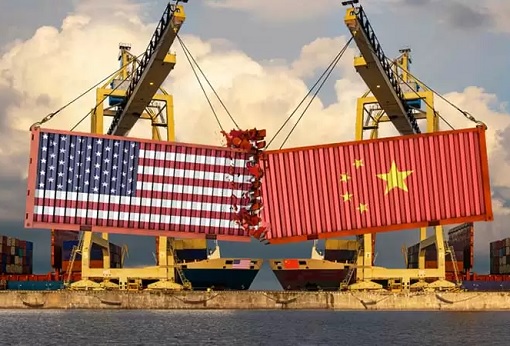
On the same Friday Trump rushed for the 100% tariff retaliatory measure, China’s aggressive offensive has also opened a monopoly investigation into the U.S. tech firm Qualcomm for suspected violation of the country’s antimonopoly law. The probe is tied to Qualcomm’s acquisition of Autotalks, an Israeli start-up. In two days, Beijing has unleashed a barrage of attacks that threaten to derail a fragile trade truce.
China went beyond semiconductors. Beijing also said it would require licenses for exports of lithium batteries and synthetic graphite anode materials, as well as equipment and technologies used to produce them. Then it revealed plans to impose a special port fee on U.S. vessels docking at Chinese ports, retaliating against the Trump administration’s move to levy fees on Chinese ships.
Even though the new restrictions could be a negotiating tactic by Beijing ahead of trade talks, it is also likely a long-term strategy. It smells a scorched-earth military strategy – if China is prevented from using the latest chips, then the U.S. and its allies too will have problems manufacturing them. If Beijing is going down, it will also pull Washington down together by disrupting raw material supply chain.
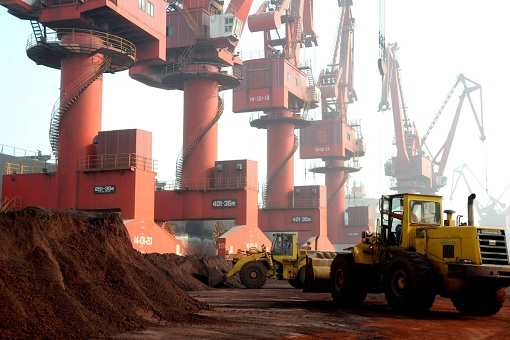
China can hold the U.S. “hostage” on rare earths, the same way the U.S. holds China on chips. Sure, Trump can threaten China with export controls on Boeing parts. But with the Chinese new rules, the same Boeing could be denied access to rare earths for both military and civilian purposes. Trump should remember that earlier rare-earth restrictions already hit automakers such as Ford.
The fact that Trump is keeping the door open to meeting Xi in two weeks at APEC in South Korea, even after the 100% tariff threat, is the clearest giveaway that the U.S. president was bluffing again. Besides, if he really wanted to punish China, the new tariff should be immediate and not delayed till November 1. Likewise, Xi too was playing a “chicken game”.
The restrictions on new rare earth elements, as well as lithium batteries and related materials, will start on November 8 – just before a 90-day trade truce with Washington expires. The extraterritorial rules will be effective on December 1. The rest of the restrictions went into effect immediately on Thursday. Just like Liu Ming and Irene Wang, China was not worried about U.S. retaliation in response.

It was a calculated move to target the American defence industry. The U.S. is going to have to negotiate because it has limited options. China wants to secure a lower tariff rate and more stable tariff policies that would make it easier for its businesses to sell into the U.S., while enjoying how the Trump administration is forced to play a game of whack-a-mole and deal with issues as they pop up.
“China should not be allowed to exert “monopoly” power over the exports of rare earth magnets, which are used in a number of high-tech, green energy and medical goods,” – double standards Trump complained. So, the Chinese cannot do that but American can exert “monopoly” power over the exports of semiconductors? Trump’s over-reaction only confirms the U.S. “Achilles” heel.
Even though the U.S. is building its own rare-earth magnet supply chain, with Trump bragging about America stopping importing Chinese rare earths, it will take years just to match China’s mining and processing infrastructure. And this is also the reason why Beijing is making its move now – striking when the iron is hot while it is dominating the global processing of rare earth.
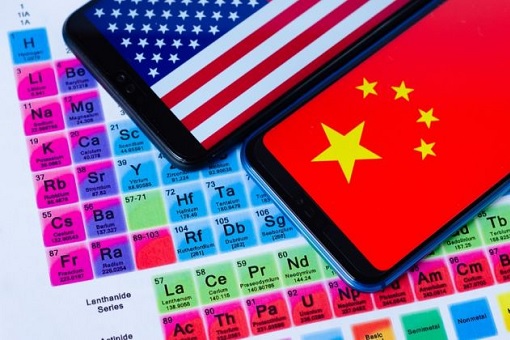
No comments:
Post a Comment